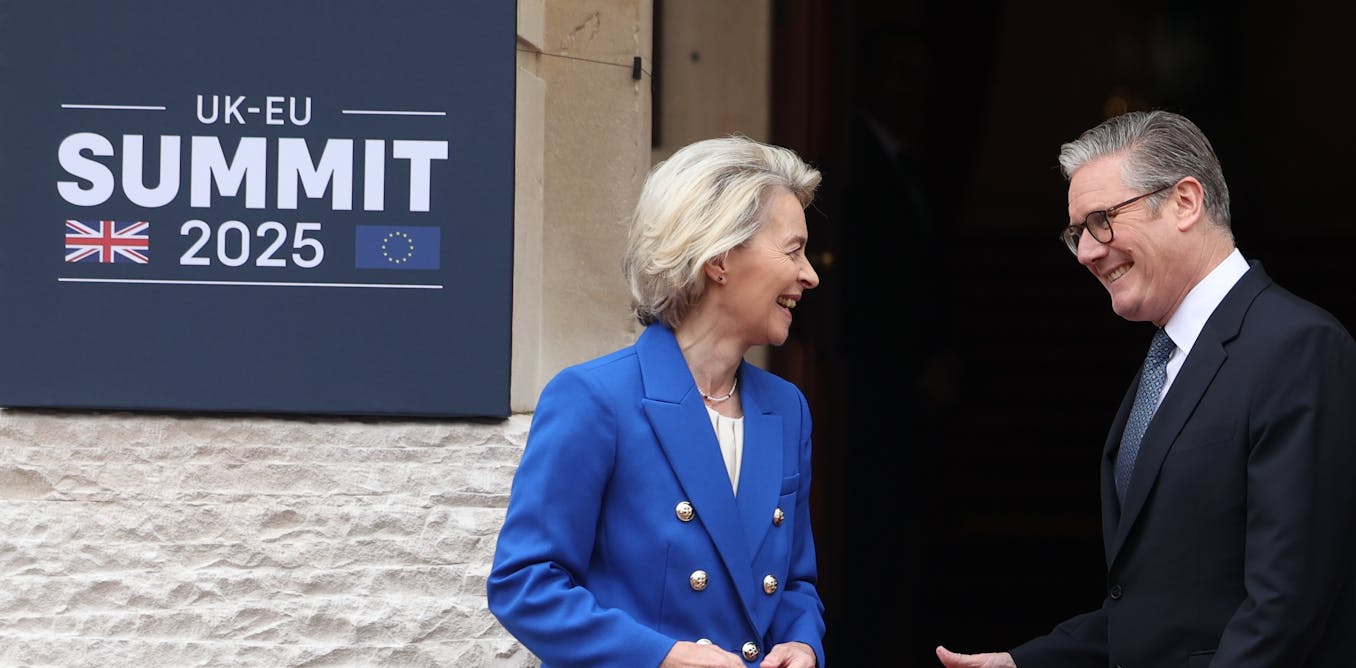Now Reading: UK and EU sign new trade, fishing and defence deal –what do economists think?
-
01
UK and EU sign new trade, fishing and defence deal –what do economists think?
UK and EU sign new trade, fishing and defence deal –what do economists think?

The UK and the EU have announced a series of groundbreaking agreements covering trade, defense, and borders. Since the Brexit vote in 2016, global economic dynamics have shifted significantly due to factors like COVID and conflicts, impacting consumers on a daily basis. This could be an opportune moment for a “reset” in the UK’s relationship with its primary trading partner. In addition to trade, both parties have agreed to explore a youth mobility scheme, and UK passport holders will have access to e-gates to avoid long queues in some European nations.
Despite the positive implications for consumers, the agreement also carries political risks as opposition parties seek to exploit the contentious issue of tighter UK-EU relations. Experts have provided insights on the implications of these announcements. The reset deal between the UK and the EU signifies a practical shift in post-Brexit relations, offering consumers some tangible benefits, particularly in the supermarket sector where smoother supply chains could lead to fewer delays and lower prices on everyday goods.
While the agreement does not fully restore single market access or all consumer protections previously ensured by EU membership, it represents progress in warming trade relations. The deal specifically benefits industries like meat production, enabling UK products to re-enter the EU market, potentially boosting exports and creating new job opportunities. The agreement on fisheries is a significant step towards the reset, catering to the interests of coastal communities and enhancing economic ties between the UK and the EU.
The UK-EU agreement holds significant implications for sectors like the Scottish salmon industry, offering improved access to EU markets and addressing regulatory hurdles that have impacted exports since Brexit. However, the extension of EU fishing rights in UK waters poses environmental and political challenges for industries like salmon farming. Despite the trade benefits, there is a need to balance growth opportunities with potential risks.
The defense and security agreement between the UK and the EU signals a shift towards closer economic ties, providing opportunities for UK firms to access EU markets more easily. This pact could stimulate economic growth, which is crucial for the UK economy’s recovery and to meet fiscal targets. The focus on security and defense presents opportunities for UK defense firms to participate in the EU’s joint procurement program and benefit from increased security spending.
In light of evolving geopolitical landscapes, the UK-EU defense and security pact aims to address external threats and invest in European defense capabilities. This initiative could boost UK defense-related industries, create job opportunities, and foster growth in strategic sectors like cybersecurity. Additionally, the agreement safeguards British steel exports from new EU regulations, offering protection to a critical sector amid challenges related to transitioning to net zero and industry crises.






